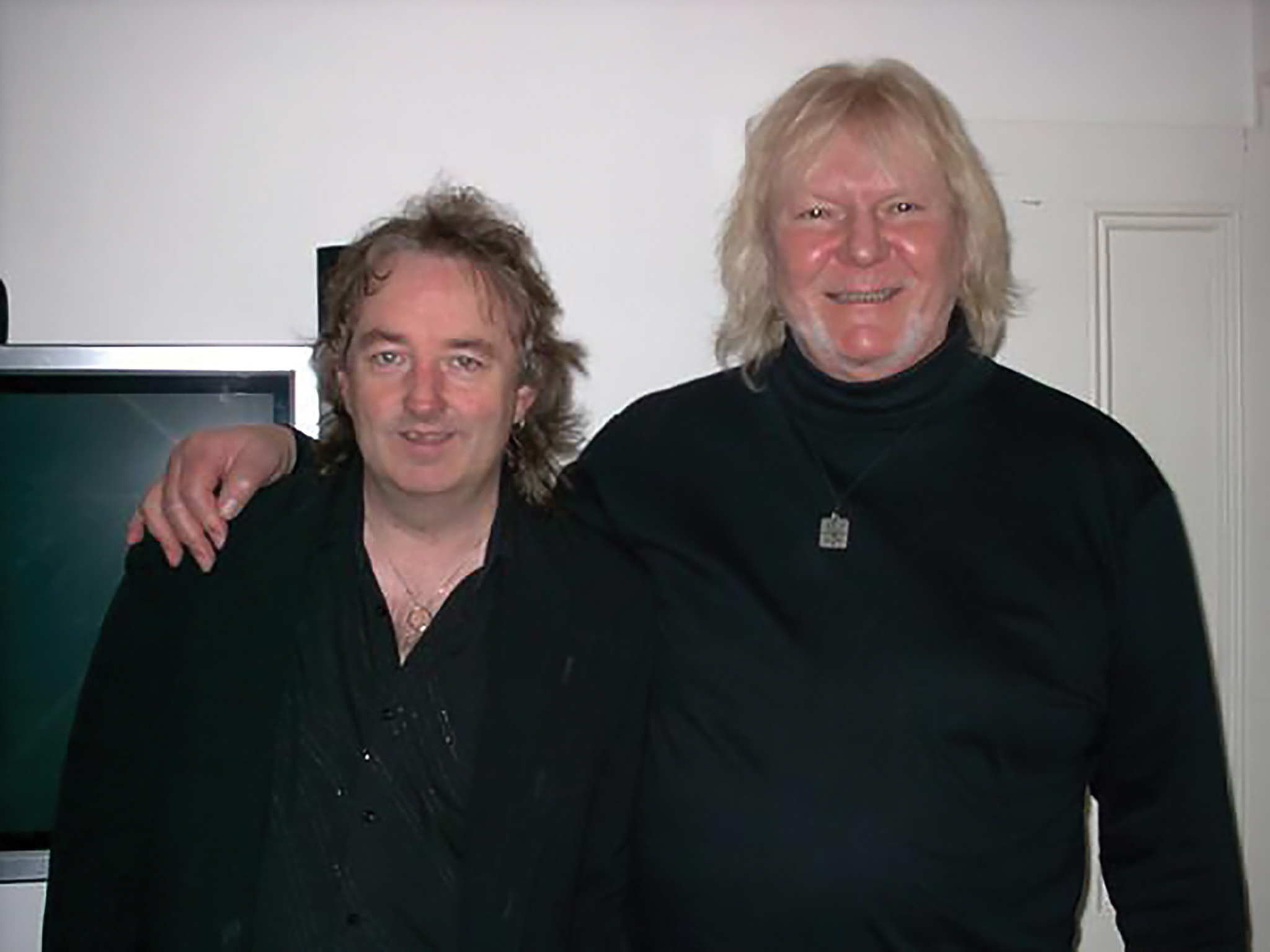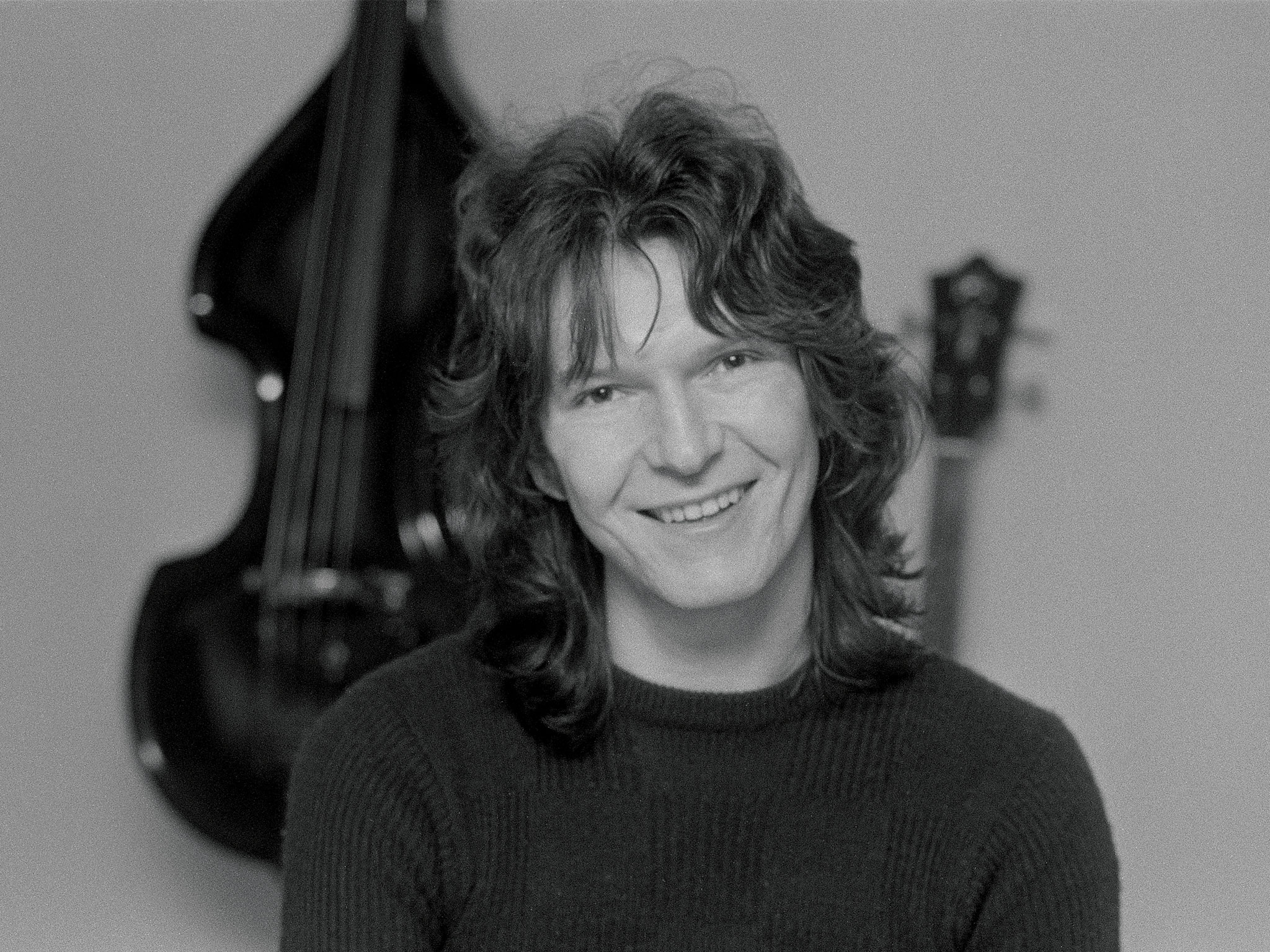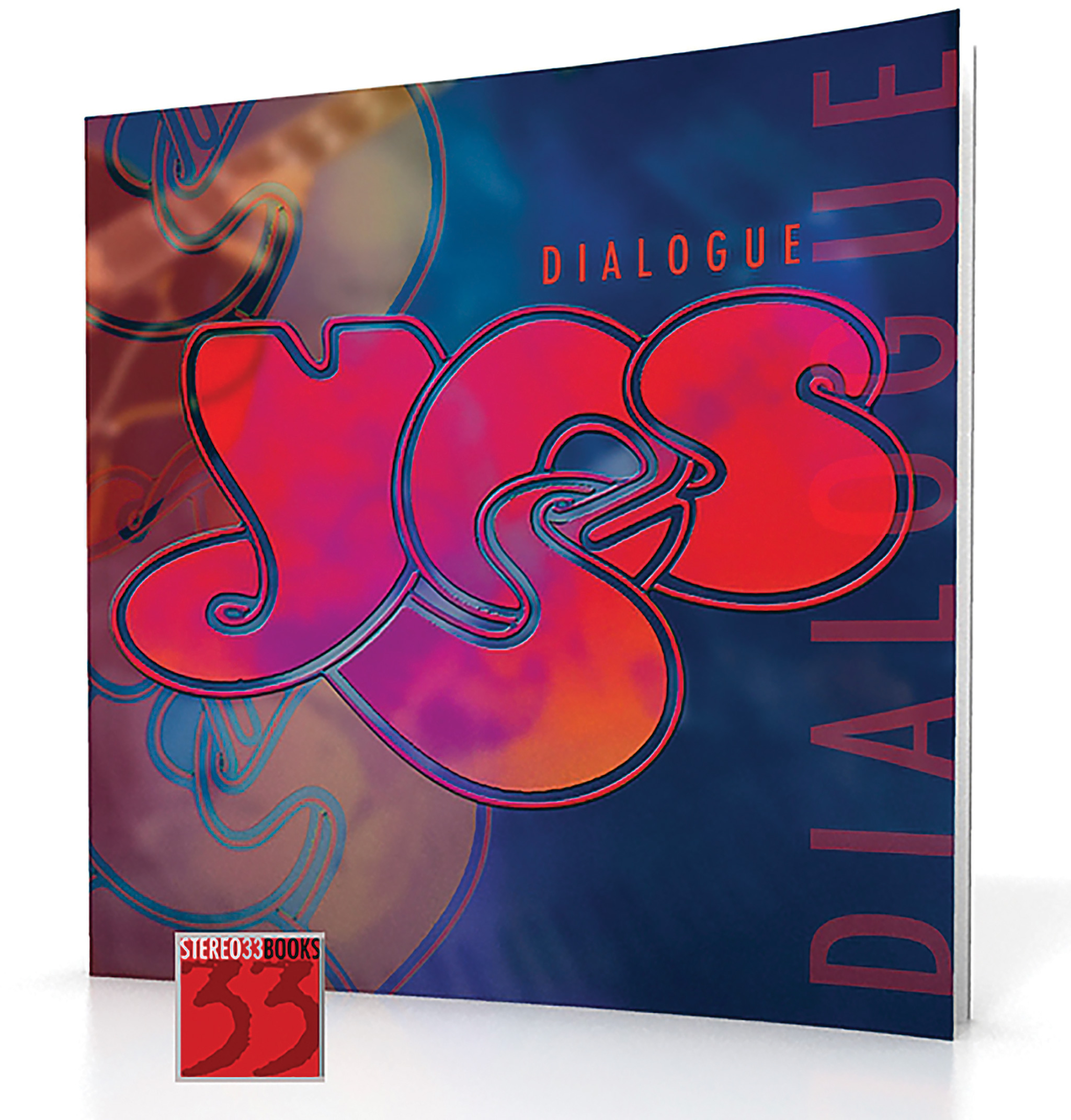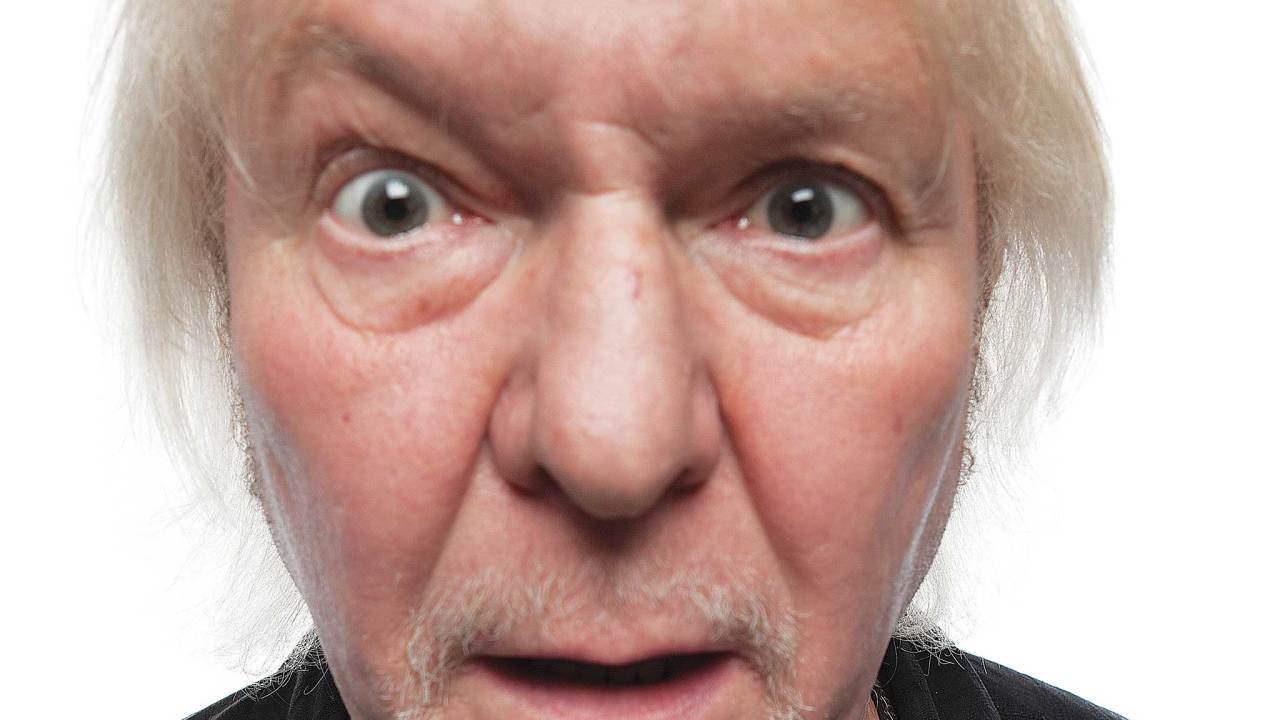On hearing of the passing of Chris Squire on Saturday 27 June, I was, of course, incredibly sad. I had known Chris was seriously ill and like many had hoped for the best but feared the worst. Sadly, the worst happened on that date and like many will tell you, even when you are expecting something, it can still come as an incredible shock.
If I’m really honest, I’m still finding it difficult to take in that Chris is no longer with us. I’ve been a huge fan since first seeing him on The Old Grey Whistle Test when they broadcast a concert of Yes at the Rainbow in London. Since that time, my life regarding Chris has gone from one of a fan right through to a professional relationship working both with Yes and Chris on a number of projects.
My first memory of Chris Squire was at the age of 14 when, as I mentioned, I watched a special edition of The Old Grey Whistle Test that featured Yes live at The Rainbow. I was hooked, not just by Chris but the whole band. However, I noticed straight away that Chris had an incredible sound – not your usual bass sound at all. But then again, Yes didn’t sound like your usual rock band. My reason for homing in on the bass was simple: I was a bassist myself, although when I say bassist, I mean it in the loosest possible sense!
Fast forward just over a year and by now I had acquired all the Yes albums up to that date, and I had a ticket for the Liverpool Empire to see them perform their new opus, Tales From Topographic Oceans. Without any support act, Yes walked onstage to an enormous ovation and started to play_ Close To The Edge_ – all well and good.
They then proceeded to play some new music, the aforementioned Tales From Topographic Oceans. Brilliant as it was to my 15-year-old ears, it was perhaps too much of a good thing to take in all in one sitting. And that’s exactly what it was, because the band, unlike many back in the day, played the whole album from start to finish. Now this in itself wouldn’t have been a bad thing except that due to a problem, the album hadn’t been released in time for the start of the tour. I sat there thinking, “When are they going to play something I know?” Since that concert, of course, the album rates very highly in my list of cherished records.
I told Chris Squire my thoughts about that 1973 concert in November 2006 when we were on a break from filming the interview for the reissue of Fish Out Of Water. He roared with laughter and said, “Yes, we sometimes didn’t manage to get it right back in the day, and sometimes still don’t!”
I continued to follow Yes, buying the albums, reading the articles in magazines and following them through the various twists and turns with members coming and going. By the time 1980 arrived, not only did Yes have a new album out, but also a radically changed line-up, with both Jon Anderson and Rick Wakeman having departed for pastures new.
However, it seemed that the band were still led by Chris Squire, whose presence loomed even larger. I was lucky enough now to somehow find my way backstage to meet them. The entire band were very friendly but it was Chris who actually came up to me, shook my hand and said, “Hi, I’m Chris.” It was something I was to see many times over the years when Chris was meeting people for the first time.
Over the years I managed to work with many bands and also worked in radio stations presenting programmes and I always enjoyed talking to Yes, and in particular Chris, who seemed keen to do many interviews. Chris was always very honest and unlike some groups, he never complained about those who had left the band. He saw all the members of the group, both past and present, as contributing to Yes as a whole entity. Also unlike many bands, you would never see Chris Squire engage in petty arguments in the press or online. He had immense integrity and would never wash Yes’ dirty laundry in public, something I was hugely impressed with.

Above: Jon and Chris on the Fish Out Of Water shoot, November 2006. Photo by Jon Kirkman.
By the time 2006 rolled round, I had worked with a number of members of Yes, both current and former, on DVD projects, boxed sets and tours, but it was a huge thrill – not to mention an honour – to be asked to conduct a filmed interview with Chris for the reissue of Fish Out Of Water.
Oddly enough, water played a big part on that particular day as the film shoot was to be at Chris’ apartment in Chelsea and I had to walk the entire length of the King’s Road in pouring rain. As I entered the living room, Chris came in, dressed in a towelling robe. “Sorry Jon, I’m running a bit late,” he said. (No change there!) He laughed at my bedraggled appearance and asked, “Is it raining? You can use my hairdryer if you like.”
The interview we filmed that day was subsequently released as part of the reissued Fish Out Of Water package, which included the original album remastered and a bonus DVD that contained the two promo films for the songs Hold Out Your Hand and You By My Side. Being a huge fan of Fish Out Of Water, it was incredible to find myself talking to Chris about it, and also finding out many things about the album that I and many other fans hadn’t previously known.
Something I don’t think anyone had known at the time was that Chris had actually been a session player on those Top 20 Hits albums that Woolworths sold. The thought that Chris Squire had played on songs made famous by the likes of Amen Corner amused not just me but him as well. He took great delight in telling me he used to make the basslines a little more complicated than they originally were, and also that he got 50 pounds for those sessions. For many reasons, the filmed interview for Fish Out Of Water will remain one of my favourite Chris Squire experiences.

Above: Photo by Getty
Following the filmed interview, Chris and I settled down for a long chat about Yes, and the conversation I recorded that day eventually ended up in my book of Yes interviews. Our talk covered Yes from the start right up to the present, which at the time saw the band on hiatus, something Chris was determined to change, and change soon. He had plans for them to go out on tour, even if it meant using different line-ups due to some members not wanting to tour so often.
The one thing I had always thought about Yes was that the power balance in the band was quite evenly divided between Jon Anderson and Chris, but the feeling I got from this interview and many subsequent conversations was that actually, the balance of power in Yes was rather more in Chris’ court. Subsequent events proved this to be the case and now, of course, looking back, it was always Chris that was driving the band. This is no reflection on the contribution of the other members of the band, but you definitely got the feeling that it was Chris Squire who led Yes from the front. I also realised that Chris was very at home leading the band, and his mission was to keep Yes continuing come what may. Even in death, he wanted them to continue.
Following those interviews in Chris’s apartment in November 2006, I was to do many more right the way up to the final Heaven & Earth album in 2014. More often than not, if it was Chris ringing me, he would always be late and he would always start the same way. “Hi Jon, sorry I’m late,” and he would then go on to tell me whatever it was that had made him late. He was never less than entertaining and always charming.
Chris’ timing has always been, shall we say, on a different scale from most. ‘Late’ in Chris’ book bore no relation to anyone else’s timescale, and I even found this to be true when waiting for Chris to turn up for a filmed interview aboard the Cruise To The Edge in 2014. Of course he always arrived with a big smile on his face, always friendly and always apologetic. I still smile when I think of that smile – you could never be anything other than utterly charmed by the man.
I have great memories of my final experiences over the last few years with Chris and Yes. I was lucky to work with the band in America and on the Cruise To The Edge events of 2013 and 2014. On both those occasions I was impressed by Chris’ ability to engage the fans – he was always happy to have a photograph taken with them, or sign something, and he always had time to talk. Unlike many rock musicians who sometimes hide away from their fans, Chris was happy to meet and interact with them. My one regret is that despite talking about getting together again to do another filmed interview in the studio for the 5.1 remix of Fish Out Of Water, it never happened.
I started off this tribute by saying I was struck by Chris’ bass playing as I was then a bassist. Of course, I now harbour no such illusions about my playing abilities, but I’m still struck by Chris’ talent on his chosen instrument. There has never been a bassist like Chris Squire and I doubt there will ever be another like him. No matter what bass Chris played, it always sounded like Chris Squire. Even though many associated him with the Rickenbacker bass, it could have been a Fender bass or even a custom-built bass, but you always knew it was Chris.
I might add that it was also incredibly loud. This man could bring mountains down around your ears, something I became very aware of one night at a soundcheck in Manchester when I was stood right in front of Chris’s bass rig. The band were going through Machine Messiah in the empty Manchester Apollo and I was pinned to the back wall! An incredible sound for sure, and a sound that almost defined a generation of progressive rock music.
One of the final things I asked Chris about back in 2006 was the legacy and the body of work Yes had completed up until that point. He replied: “Yes, it is a body of work and I’m not sure the exact figure – I suppose we’ve probably sold something like 50 million albums, including the repackaged versions, over our career, which is pretty decent, and I’m just glad that we survived to be able to do it. I’m sure there will be Yes shows with Rick and Jon and Steve and Alan and myself that will be coming up this year [2007] or 2008. There may be an alternative version of Yes as well if somebody doesn’t want to work as much as others. We have to figure out a new way of doing Yes shows, but I’m sure it will continue.”
In closing, I will, of course, like many millions of Yes fans all over the world, miss Chris Squire’s incredible talent as a musician and composer. Personally, I will mourn the man because even though I’ve interviewed and worked with many musicians over the last 40 years, there was no one quite like Chris Squire, and I will certainly miss his wonderous stories.
Jon Kirkman’s updated paperback version Yes Dialogues is available now from http://stereo33books.com/yes-dialogues/.

